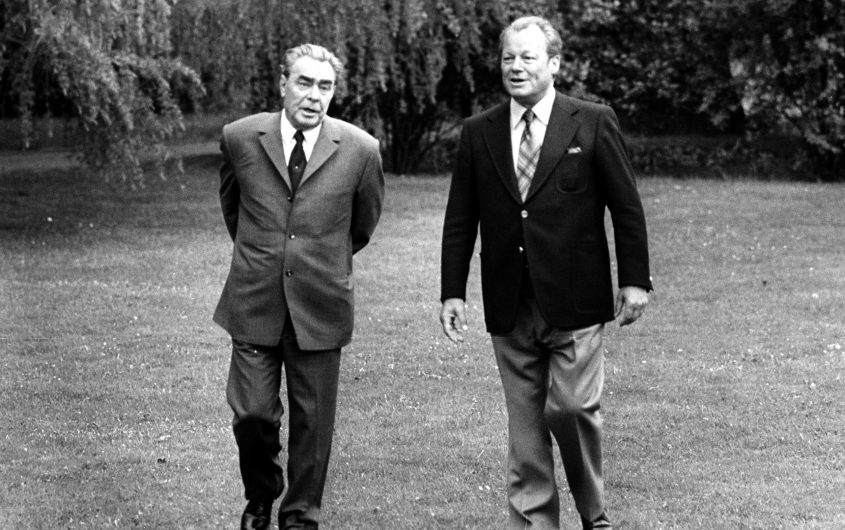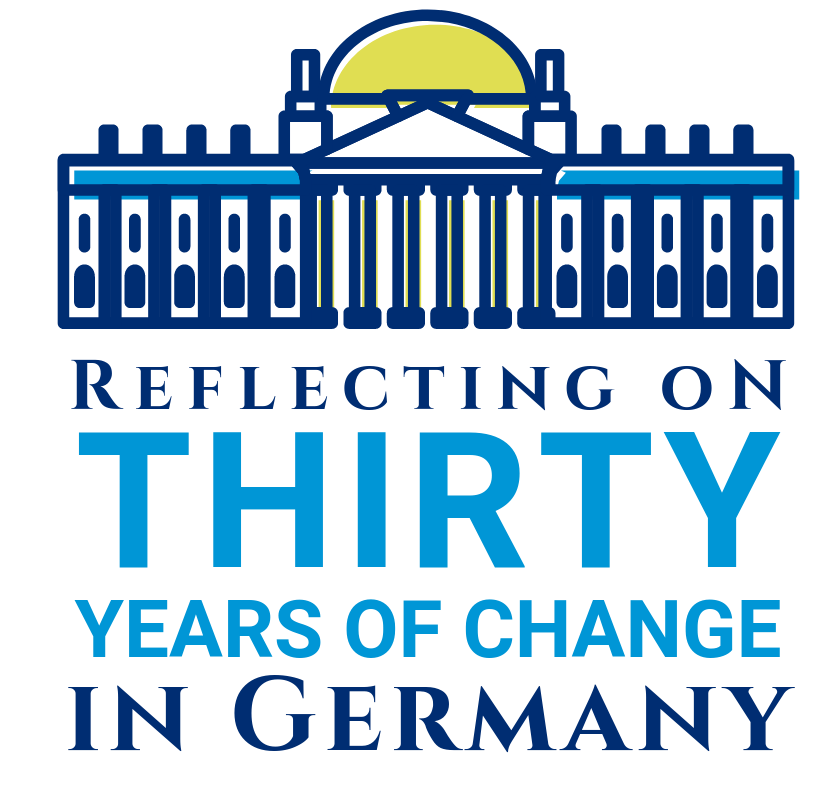
Peter Timmullstein bild via Getty Images
Fifty Years since Ostpolitik. How Willy Brandt’s Diplomacy Transformed Europe

Stephan Kieninger
Historian
Stephan Kieninger holds a PhD in Modern History from Mannheim University and had previously been a Wilson Fellow at the Woodrow Wilson Center, a postdoc at Johns Hopkins SAIS, a fellow at the Berlin Center for Cold War Studies, and a Senior Researcher at the Federal German Archives.
He is the author of three books on U.S. foreign policy and European security in the Cold War and after: Securing Peace in Europe. Strobe Talbott, NATO, and Russia after the Cold War (Columbia University Press, 2025), The Diplomacy of Detente. Cooperative Security Policies from Helmut Schmidt to George Shultz (Routledge, 2018), Dynamic Détente: The United States and Europe, 1964–1975 (Rowman & Littlefield, 2016), and has received fellowships from the German Historical Institute, the Hoover Institution, and the German Academic Exchange Service.
 It is fifty years since the start of Willy Brandt’s Ostpolitik. Brandt was a peculiar figure in contemporary history. Brandt’s dropping to his knees in front of the Warsaw Ghetto Memorial in 1970 is one of the most iconic gestures of modern European history. In 1971, he was awarded the Nobel Peace Prize for his contributions to peace and security. His statecraft created a new quality of international relations. His Ostpolitik was aimed at the emergence of a united Germany and a Europe whole and free. His objective was to “reunite what belongs together” as he famously said when the Berlin Wall came down on November 9, 1989. Ostpolitik helped to lay the seeds of democracy in the Warsaw Pact countries. Brandt’s aim was to encourage the slow and difficult process of Eastern Europe’s reassociation with the rest of the world. Ostpolitik and the Helsinki Final Act of 1975 turned freedom and openness into the pivotal principles of Europe’s security. The Final Act’s provisions on human rights and the freer movement of people, information, and ideas turned into the ferment for a transnational network of dissidents, human rights activists, and peace movements that challenged Communism in Eastern Europe and the Soviet Union until its demise. Willy Brandt had envisioned this dynamic Helsinki effect: He believed in soft power and in the ability to facilitate liberalizing changes in the societies of Eastern Europe.
It is fifty years since the start of Willy Brandt’s Ostpolitik. Brandt was a peculiar figure in contemporary history. Brandt’s dropping to his knees in front of the Warsaw Ghetto Memorial in 1970 is one of the most iconic gestures of modern European history. In 1971, he was awarded the Nobel Peace Prize for his contributions to peace and security. His statecraft created a new quality of international relations. His Ostpolitik was aimed at the emergence of a united Germany and a Europe whole and free. His objective was to “reunite what belongs together” as he famously said when the Berlin Wall came down on November 9, 1989. Ostpolitik helped to lay the seeds of democracy in the Warsaw Pact countries. Brandt’s aim was to encourage the slow and difficult process of Eastern Europe’s reassociation with the rest of the world. Ostpolitik and the Helsinki Final Act of 1975 turned freedom and openness into the pivotal principles of Europe’s security. The Final Act’s provisions on human rights and the freer movement of people, information, and ideas turned into the ferment for a transnational network of dissidents, human rights activists, and peace movements that challenged Communism in Eastern Europe and the Soviet Union until its demise. Willy Brandt had envisioned this dynamic Helsinki effect: He believed in soft power and in the ability to facilitate liberalizing changes in the societies of Eastern Europe.
Willy Brandt had envisioned this dynamic Helsinki effect: He believed in soft power and in the ability to facilitate liberalizing changes in the societies of Eastern Europe.
After the federal elections on September 28, 1969, it took Brandt merely four weeks to form a coalition government with the Free Democratic Party (FDP). Brandt, who ran for the third time after 1961 and 1965, was elected chancellor on October 21, 1969, the first Social Democratic chancellor in the postwar period. Thereafter, he began to pursue his Ostpolitik initiatives at enormous speed. The Moscow Treaty in August 1970 was the first tangible result, followed by the Warsaw Treaty in December 1970, the Quadripartite Agreement on Berlin in September 1971, and the so-called “Basic Treaty” with East Germany of November 1972 that turned out to be the beginning of new era in West Germany’s relations with the German Democratic Republic. Brandt’s recipe for success was a comprehensive concept for Ostpolitik that had been developed in intense discussions with the Kennedy and Johnson administrations during Willy Brandt’s tenure as Governing Mayor of Berlin and foreign minister of the Grand Coalition government with the conservative CDU and CSU parties between 1966 and 1969. Fifty years ago, in the autumn of 1969, Brandt initiated the implementation of Ostpolitik’s blueprint. The key to success was support from the Nixon administration. Unlike Kennedy and Johnson, Nixon and Kissinger never became friends with Brandt. Nixon was troubled that Brandt’s Ostpolitik, however well intentioned, contained the danger of a resurgence of German nationalism. Brandt was utterly conscious of Nixon’s mistrust: He felt responsibility to limit the risks of his diplomacy and to define the horizons of Germany’s foreign policy. At the same time, Brandt dared to raise the question of German national interests and attempted to relate them—and indeed succeeded in relating them—to the common interests of the West. Looking back, Henry Kissinger said that “the great quality of Brandt was a combination of a prophetic vision and the ability to translate it into human experience. No formal statements could have reassured the rest of the world as much as suggestions like the visit to the Warsaw Ghetto and the commitment that Brandt represented to the kind of human values that had not been associated with a national German policy or much of modern history.”[1]
Read more on the Fall of the Berlin Wall from AGI
[1] Henry Kissinger, “The Response,” in Remembering Willy Brandt (Berlin: Schriftenreihe der Bundeskanzler-Willy-Brandt-Stiftung, Volume 10, 2003), p. 45.









